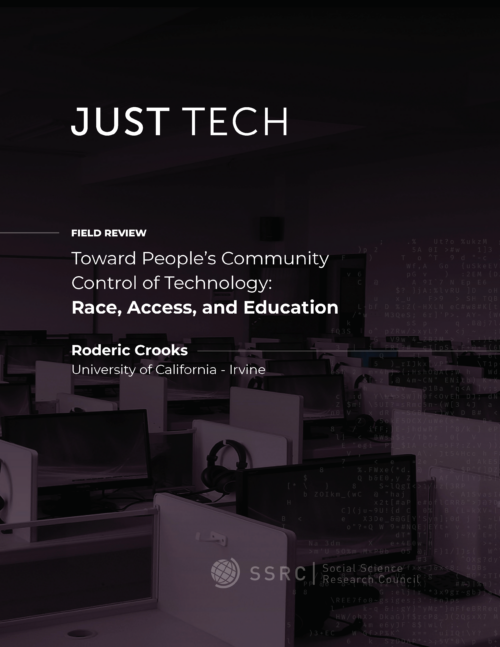Description
This field review explores how the benefits of access to computing for racialized and minoritized communities has become an accepted fact in policy and research, despite decades of evidence that technical fixes do not solve the kinds of complex social problems that disproportionately affect these communities. Roderic Crooks uses the digital divide framework—a 1990s policy diagnosis that argues that the growth and success of the internet would bifurcate the public into digital “haves” and “have-nots”—as a lens to look at why access to computing frequently appears as a means to achieve economic, political, and social equality for racialized and minoritized communities. First, the Crooks presents a brief cultural history of computer-assisted instruction to show that widely-held assumptions about the educational utility of computing emerged from utopian narratives about scientific progress and innovation—narratives that also traded on raced and gendered assumptions about users of computers. Next, Crooks uses the advent of the digital divide framework and its eventual transformation into digital inequality research to show how those raced and gendered norms about computing and computer users continue to inform research on information and communication technologies (ICTs) used in educational contexts. This is important because the norms implicated in digital divide research are also present in other sites where technology and civic life intersect, including democratic participation, public health, and immigration, among others. Crooks concludes by arguing that naïve or cynical deployments of computing technology can actually harm or exploit the very same racialized and minoritized communities that access is supposed to benefit. In short, access to computing in education—or in any other domain—can only meaningfully contribute to equality when minoritized and racialized communities are allowed to pursue their own collective goals.

